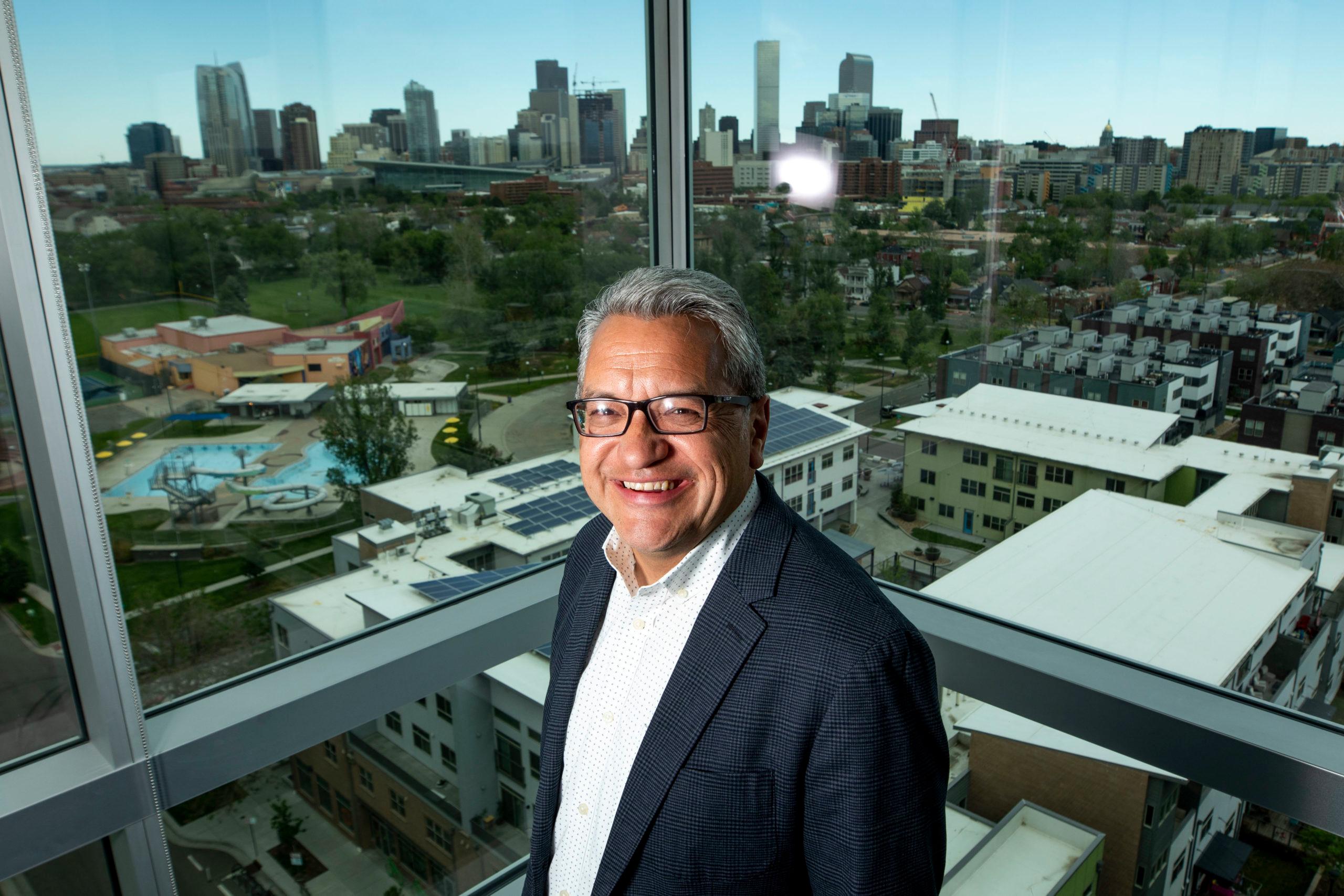The director of Denver's public housing authority is leaving to head a national housing nonprofit amid a global pandemic that is putting a spotlight on what it means to be safe at home.
June 11 is Ismael Guerrero's last day as executive director of the Denver Housing Authority, which provides homes for some of Denver's poorest residents in nearly 5,000 public housing units, most subsidized by the federal Department of Housing and Urban Development. On July 1, Guerrero starts as president and CEO of Mercy Housing, a Denver-based nonprofit that has developed, preserved and financed more than 48,000 homes across the country that low- and moderate-income families can afford.
Following the novel coronavirus outbreak, DHA indefinitely suspended evictions for non-payment of rent and late fees even before Gov. Jared Polis enacted such protections across the state.
"That was the least we could do," Guerrero said, adding that tenants will be able to repay rent as they are able.
Guerrero said the suspensions of evictions and late payments has not so far severely affected rent collections, but he said that could change. The housing authority will be looking to the federal government for continued help as the economic impact of COVID-19 becomes clearer, he said.
The outbreak has been "beyond the ability of any local government to be able to manage," Guerrero said. "It's going to take national leadership and national response."
Earlier this week, the city of Denver announced it was allocating $4 million in federal funds for rent and utility assistance, $1 million for mortgage assistance and $1.5 million for rehousing people affected by COVID-19. The funds were part of the first $20 million to be spent out of more than $126 million in federal Coronavirus Aid, Relief, and Economic Security Act (CARES Act) dollars the city has received. In addition, U.S. Sen. Cory Gardner announced that the Denver Housing Authority was receiving more than $287,000 in HUD COVID-19 response funding.
Guerrero started his tenure as head of DHA 13 years ago, at the start of another national economic downturn. He said federal spending on housing has not recovered since the Great Recession.
"We're not building nearly enough units to meet the demand" for housing for low-income families, he said. "We've really had to make do with much less than we should have to work with."
Guerrero said that led to looking closer to home for funds.
The Denver Housing Authority has come under scrutiny for selling property to private developers, earning money to build or renovate public housing. DHA officials say the sales to market-rate developers allow for the creation of communities where poor, middle-class and rich people live near one another, leading to more sustainable neighborhoods.
Last year, the housing authority announced it had closed on the issuance of $129.8 million in Intergovernmental Agreement bonds to be used toward building and preserving nearly 2,500 units of affordable housing, part of Denver's overall goal of adding at least 6,000 units over five years. The city had pledged an existing half property tax mill to DHA, giving it a stable source of revenue on which to make a case for the bond issue. S&P Global Credit rated the DHA bonds AA+. Guerrero described a strong partnership with Mayor Hancock, a former DHA employee who lived in public housing as a child.
The bond issuance, the largest single financing in DHA's eight-decade history, is among the highlights of Guerrero's tenure. He can also point to the completion in 2017 of the Mariposa District, which replaced the South Lincoln Park Homes and redeveloped a neighborhood. DHA moved into its new headquarters, in Mariposa, last year. Under Guerrero, DHA also has started work on plans to make Sun Valley the next Mariposa.
Half the South Lincoln Park residents returned to live in Mariposa, compared with a national return rate of 10 to 15 percent for similar public housing redevelopment projects, Guerrero said. He said he hoped for an even higher retention rate for Sun Valley.
"Our goal is development without displacement," he said.
Another goal is to be about more than housing, he said. Mariposa is home to the Osage Café, which is operated by a nonprofit to train young people for culinary careers. The Sun Valley development will include a grocery market that trains and employs public housing residents.
Guerrero said Mercy, where he worked from 2000 to 2003 overseeing real estate development for the Denver region, takes a similar approach to addressing tenants' and neighborhoods' diverse needs. He said he hoped to take the social enterprise idea of Osage Café to Mercy, a model that "creates a diversity in the funding that ensures more stability long term."
Federal funding to support residents has been scaled back over the years, he said.
The coronavirus has exposed gaps in health, food access and connections to the wider community that Guerrero sees as at the root of poverty. He called for urgent attention to such issues once the pandemic is over.
Before COVID-19, "many of our residents were already isolated, were already struggling to get healthy food," he said.
He's worried about leaner times ahead for affordable housing providers. He said the cost of housing the very poor should be measured against the cost of leaving people without housing, which often shows up in the budgets of emergency rooms and jails.
Finding the funding is "a question of prioritization," Guerrero said. "More funding for housing, more funding for resident services, it's often a question of political will, political priorities."
Joshua Crawley, DHA's in-house lawyer since 2004, is serving as interim executive director during a national search for Guerrero's successor.













